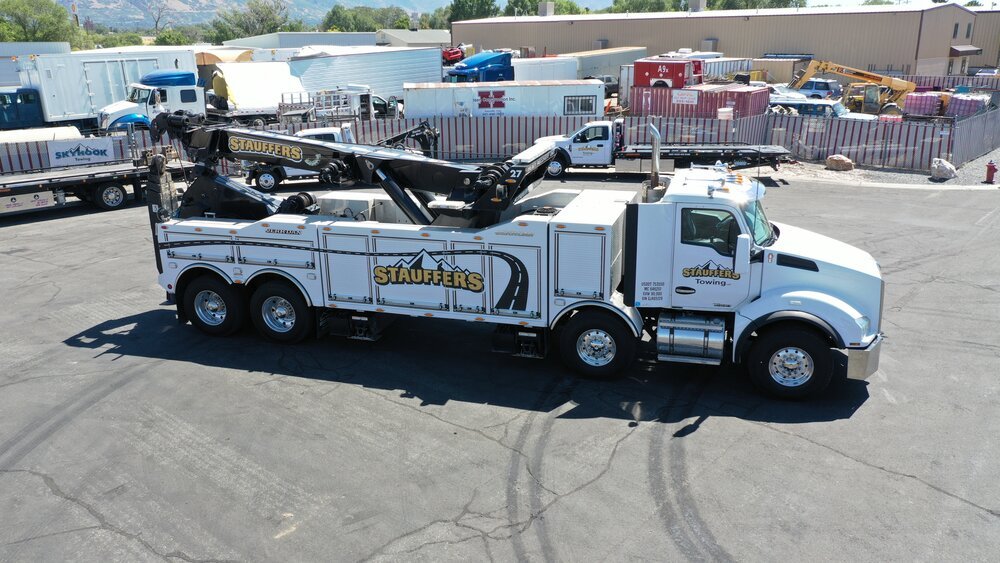What Is Heavy-Duty Towing?
When your vehicle breaks down and you cannot get it to start, your first instinct is naturally to call a tow truck. What you might not know, however, is that not all towing companies are the same. Most towing companies excel at helping stranded people move their cars from the side of the road and get them to a repair shop. But what if your vehicle is not a standard car or truck?
Take, for example, an RV that has become overheated and now has a blown head gasket. Unfortunately, a standard tow truck isn’t equipped to transport a vehicle that surpasses a certain weight limit, and most RVs would surpass that limit. This is where heavy-duty tow trucks come into play.
Towing Classifications and Weight Limits
A standard tow truck is not necessarily designed to handle every towing job imaginable. While they can haul cars and trucks from the side of the road, most standard tow trucks struggle with bulkier vehicles. Oftentimes, they are not even designed to safely carry out such towing jobs.
States and counties vary in their exact requirements for tow truck classification, but the guidelines are pretty similar across the board. Light-duty trucks, also referred to as Class A, usually work best to pull vehicles that weigh 7,000 lbs or less and the truck’s gross vehicle weight rating ranges from no less than 10,000 lbs to no less than 14,000 lbs total (including the weight of the vehicle being towed).
Medium-duty trucks, also known as Class B, handles vehicles a little heavier than Class A, usually weighing between 7,000 and 17,000 lbs. Medium duty trucks have a gross vehicle weight rating (GVWR) of 22,000 to 26,000 lbs.
Heavy-duty trucks, or Class C trucks, tow vehicles that exceed 17,000 lbs, and their GVWR is above 46,000 lbs (48,000 in some places). Additionally, some jurisdictions have a Super Heavy-duty classification, which is used for towing jobs exceeding 52,000 lbs.
Which Vehicles Require Heavy-Duty Towing?
When you think about which vehicles would need heavy duty towing if they break down, think about the sort of vehicle that requires special licensure to operate on public roads. Passenger vehicles in Classes 1 and 2 and commercial/utility vehicles in Classes 3 and 4 fall under light-duty to medium-duty towing. This leaves the large industrial vehicles of Classes 5 to 8, which generally include:
Busses: school busses, tour busses, city busses
Motorhomes: RVs and other mobile residential vehicles (one of the few heavy-duty vehicles that usually don’t require special licensure)
Large trucks/vans: delivery trucks with trailers, package delivery vans
City service vehicles: fire trucks, garbage trucks, fuel transporters, roadwork vehicles, large tractor equipment, semi-trucks
It’s worth noting that size is not the only factor to consider when choosing heavy-duty towing. A vehicle’s dimensions, shape, and safety requirements should also play a role in your decision to employ a heavy-duty towing company’s service. Long and tall vehicles need to be handled with care, as their dimensions make them awkward to haul. Additionally, semi-trucks with special or hazardous cargo in their trailers also require a specialized, safe approach. Towing with heavy-duty precautions is likely to get the haul accomplished most effectively.
Do You Need Heavy-Duty Towing?
Not only is heavy-duty towing usually required for large, heavy vehicles, it is ideal if you have your vehicle’s safety in mind. Improper towing can damage large equipment; despite a towing company’s best efforts, using a truck that’s too small to handle the weight of large vehicles can create unnecessary risks and road hazards.
If your industrial-sized vehicle is a business tool, you’re going to want to ensure that it is towed to a repair garage as quickly as possible, while avoiding further damage along the way. Repairing a large vehicle is already likely to be an expensive process, so it’s necessary to work with a towing company that carries a hefty insurance policy for heavy-duty moves. With this added care, you can protect your vehicle and your business against devastating loss. After all, repair costs add up fast.
It’s highly important to research your options before choosing a towing company, especially if you have a large vehicle that requires heavy-duty towing. Working with the right company is going to take a lot of the stress and hassle out of your towing needs. Be sure to ask questions about heavy-duty experience, insurance protocols, and vehicle-specific details before making your decision. We at Stauffer’s Towing are happy to help in any way we can!

